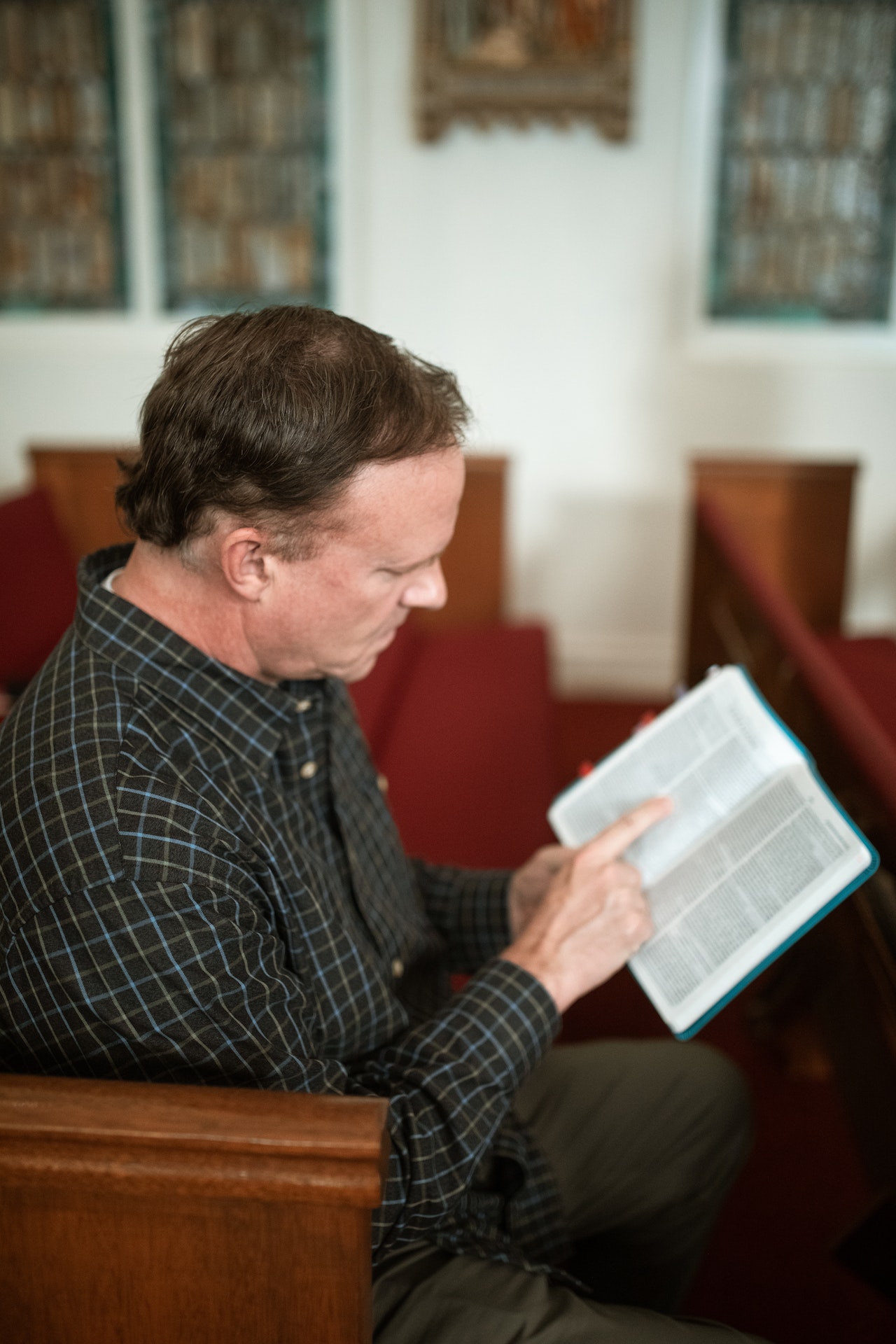The Orthodox Church did participate in the Crusades, although its involvement was different from that of the Catholic Church.
Table of Contents
Role of the Orthodox Church in the Crusades
The Crusades were a series of military campaigns that took place during the Middle Ages, with the goal of reclaiming the Holy Land from Muslim control. While the Catholic Church played a significant role in organizing and promoting the Crusades, the involvement of the Orthodox Church is often overlooked. Many people wonder if the Orthodox Church participated in the Crusades, and the answer is not a simple yes or no.
To understand the role of the Orthodox Church in the Crusades, we need to delve into the historical context. At the time, the Christian world was divided into two major branches: the Catholic Church in the West and the Orthodox Church in the East. The Crusades were primarily a Western European endeavor, led by Catholic rulers and supported by the Pope. However, this does not mean that the Orthodox Church was completely absent from the Crusades.
While the Orthodox Church did not initiate the Crusades, it did provide some level of support and participation. One of the key ways in which the Orthodox Church was involved was through the Byzantine Empire, which was the Eastern Roman Empire and the center of Orthodox Christianity. The Byzantine Emperor, Alexios I Komnenos, sent a letter to Pope Urban II in 1095, requesting military aid against the Seljuk Turks who had captured Anatolia. This plea for help was one of the catalysts for the First Crusade.
During the First Crusade, the Crusaders passed through Byzantine territory on their way to the Holy Land. The Byzantine Emperor provided them with supplies and military assistance, as well as granting them passage through his lands. However, tensions between the Crusaders and the Byzantines soon arose, leading to conflicts and strained relations. The sack of Constantinople by the Fourth Crusade in 1204 further deepened the divide between the Catholic and Orthodox Churches.
Despite these tensions, there were instances of cooperation between the Orthodox Church and the Crusaders. Some Orthodox bishops and priests joined the Crusader armies, providing spiritual guidance and support to the soldiers. Additionally, there were instances of Orthodox rulers and nobles participating in the Crusades, either out of personal ambition or to protect their territories from Muslim expansion.
It is important to note that the level of Orthodox Church involvement varied throughout the Crusades. While there were instances of cooperation and participation, there were also periods of hostility and conflict. The Orthodox Church did not have the same level of institutional support and organization as the Catholic Church, which limited its ability to actively participate in the Crusades.
In conclusion, the Orthodox Church did have some level of involvement in the Crusades, although it was not as prominent as the Catholic Church. The Byzantine Empire, as the center of Orthodox Christianity, provided support and assistance to the Crusaders during the First Crusade. There were also instances of Orthodox clergy and rulers participating in the Crusades. However, tensions and conflicts between the Catholic and Orthodox Churches, as well as the lack of institutional support, limited the overall participation of the Orthodox Church in the Crusades.
Influence of the Orthodox Church on Crusade outcomes

The Crusades were a series of military campaigns that took place during the Middle Ages, with the goal of reclaiming the Holy Land from Muslim control. While the Catholic Church played a significant role in organizing and promoting the Crusades, the influence of the Orthodox Church is often overlooked. Many people wonder if the Orthodox Church participated in the Crusades and what impact it had on the outcomes.
To understand the influence of the Orthodox Church on the Crusades, it is important to first recognize the historical context. At the time, the Catholic Church and the Orthodox Church were two separate entities, with different beliefs and practices. The Catholic Church was centered in Rome, while the Orthodox Church was centered in Constantinople, now modern-day Istanbul.
Although the Orthodox Church did not have the same level of involvement as the Catholic Church in organizing the Crusades, it did play a role in shaping the outcomes. One way in which the Orthodox Church influenced the Crusades was through its support of the Byzantine Empire. The Byzantine Empire, which was predominantly Orthodox, was under constant threat from Muslim forces. The Crusades provided an opportunity for the Byzantine Empire to gain support from Western European powers, who were predominantly Catholic.
The Orthodox Church also had a significant impact on the Crusades through its influence on the Eastern European powers. Many of these powers, such as Bulgaria, Serbia, and Russia, were Orthodox and saw the Crusades as an opportunity to expand their territories and influence. These Eastern European powers often fought alongside the Western European Crusaders, forming a united front against the Muslim forces.
Furthermore, the Orthodox Church played a crucial role in providing spiritual guidance and support to the Crusaders. While the Catholic Church had its own hierarchy and clergy, the Orthodox Church had its own network of priests and bishops who accompanied the Crusaders. These clergy members provided religious services, administered sacraments, and offered moral support to the Crusaders.
The Orthodox Church also had a significant impact on the Crusades through its influence on the Eastern European powers. Many of these powers, such as Bulgaria, Serbia, and Russia, were Orthodox and saw the Crusades as an opportunity to expand their territories and influence. These Eastern European powers often fought alongside the Western European Crusaders, forming a united front against the Muslim forces.
In addition to its military and spiritual support, the Orthodox Church also played a role in shaping the outcomes of the Crusades through its influence on the political landscape. The Orthodox Church had a strong presence in the Byzantine Empire, which was a major player in the Crusades. The Byzantine Emperor often had to navigate the complex relationships between the Catholic and Orthodox Churches, as well as the various European powers involved in the Crusades.
In conclusion, while the Orthodox Church did not have the same level of involvement as the Catholic Church in organizing the Crusades, it did play a significant role in shaping the outcomes. Through its support of the Byzantine Empire, its influence on Eastern European powers, its provision of spiritual guidance to the Crusaders, and its impact on the political landscape, the Orthodox Church had a lasting influence on the Crusades. It is important to recognize the contributions of the Orthodox Church in order to have a more comprehensive understanding of this complex historical event.
Controversies surrounding the Orthodox Church’s involvement in the Crusades
The Crusades were a series of military campaigns that took place during the Middle Ages, with the goal of reclaiming the Holy Land from Muslim control. While the Catholic Church is often associated with the Crusades, there has been some debate about the involvement of the Orthodox Church. In this article, we will explore the controversies surrounding the Orthodox Church’s participation in the Crusades.
To understand the Orthodox Church’s role in the Crusades, it is important to consider the historical context. The Crusades were primarily initiated by the Catholic Church, and the Pope played a significant role in rallying support for these campaigns. However, it is worth noting that the Orthodox Church was not under the authority of the Pope and had its own hierarchy and leadership.
One of the main controversies surrounding the Orthodox Church’s involvement in the Crusades is the question of whether they actively participated or simply supported the cause. Some argue that the Orthodox Church did not actively participate in the military campaigns but provided spiritual and moral support to the Crusaders. They believe that the Orthodox Church saw the Crusades as an opportunity to unite Christians against a common enemy and reclaim the Holy Land.
On the other hand, there are those who claim that the Orthodox Church did participate in the Crusades, albeit to a lesser extent than the Catholic Church. They argue that while the Orthodox Church did not have the same level of organization and resources as the Catholic Church, there were instances where Orthodox soldiers fought alongside their Catholic counterparts. These individuals point to historical accounts that mention Orthodox soldiers taking part in various Crusades.
Another controversy surrounding the Orthodox Church’s involvement in the Crusades is the question of whether they supported the violence and atrocities committed during these campaigns. It is important to note that the Crusades were marked by acts of violence, including the sacking of cities and the massacre of non-Christians. Some argue that the Orthodox Church, like the Catholic Church, condoned and even encouraged these acts of violence in the name of reclaiming the Holy Land.
However, there are others who believe that the Orthodox Church did not support the violence and atrocities committed during the Crusades. They argue that the Orthodox Church’s teachings emphasize peace, love, and forgiveness, and that any acts of violence committed by individuals should not be attributed to the Church as a whole. These individuals believe that the Orthodox Church’s involvement in the Crusades was primarily driven by a desire to protect and preserve Christian holy sites.
In conclusion, the question of whether the Orthodox Church participated in the Crusades is a complex and controversial one. While some argue that the Orthodox Church actively participated in the military campaigns, others believe that they provided spiritual and moral support. Similarly, there are differing opinions on whether the Orthodox Church condoned the violence and atrocities committed during the Crusades. Ultimately, the truth may lie somewhere in between, and it is important to consider the historical context and various perspectives when examining the Orthodox Church’s involvement in the Crusades.
Historical significance of the Orthodox Church’s participation in the Crusades
The Crusades were a series of military campaigns that took place during the Middle Ages, with the goal of reclaiming the Holy Land from Muslim control. While the Crusades are often associated with the Catholic Church, it is important to recognize that the Orthodox Church also played a significant role in these historical events.
The Orthodox Church, which originated in the Byzantine Empire, had a complex relationship with the Crusades. At times, the Orthodox Church actively participated in the Crusades, while at other times, it maintained a more neutral stance. This nuanced approach can be attributed to a variety of factors, including political considerations and theological differences between the Orthodox and Catholic Churches.
One of the key reasons for the Orthodox Church’s participation in the Crusades was the threat posed by the expansion of the Seljuk Turks. These Muslim invaders had captured Jerusalem in 1071, leading to concerns among Christians about the safety of their holy sites. In response, the Byzantine Emperor Alexios I Komnenos sent a plea for help to Pope Urban II, who then called for the First Crusade in 1095.
While the primary goal of the Crusades was to recapture Jerusalem, the Byzantine Empire also had its own territorial ambitions. The Orthodox Church saw an opportunity to regain control over lost territories in Anatolia and the Levant, which had been conquered by Muslim forces. This territorial aspect of the Crusades appealed to the Byzantine Empire’s desire to expand its influence and protect its Christian population.
However, it is important to note that the Orthodox Church’s participation in the Crusades was not uniform. Some Orthodox leaders, such as Patriarch Michael Cerularius of Constantinople, opposed the Crusades due to theological differences with the Catholic Church. These differences included disagreements over the nature of the Holy Spirit and the use of unleavened bread in the Eucharist. These theological disputes created tensions between the Orthodox and Catholic Churches, making it difficult for them to fully unite in their efforts against the Muslims.
Furthermore, the Fourth Crusade, which took place in the early 13th century, resulted in the sacking of Constantinople by the Crusaders themselves. This event further strained the relationship between the Orthodox Church and the Crusaders, as the Byzantine Empire felt betrayed by their supposed Christian allies. The sacking of Constantinople also led to a permanent schism between the Orthodox and Catholic Churches, which still exists to this day.
In conclusion, the Orthodox Church did participate in the Crusades, although its involvement was complex and varied. While some Orthodox leaders saw the Crusades as an opportunity to protect Christian interests and regain lost territories, others opposed them due to theological differences with the Catholic Church. The Fourth Crusade, in particular, had a lasting impact on the relationship between the Orthodox Church and the Crusaders, leading to a permanent schism. Understanding the historical significance of the Orthodox Church’s participation in the Crusades helps shed light on the complex dynamics of this period and the lasting effects it had on the Christian world.
Conclusion
Yes, the Orthodox Church did participate in the Crusades.
For licensing reasons, we must provide the following notice: This content was created in part with the help of an AI.


